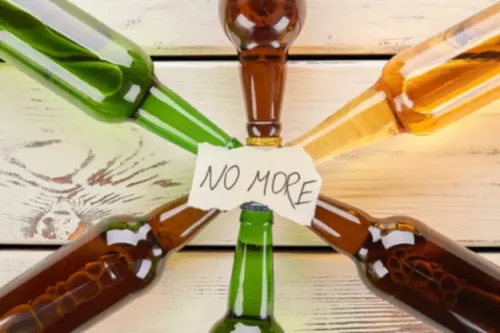

If you don’t feel you can talk to a parent, reach out to a family friend, older sibling, or school counselor, for example, or call one of the helplines listed below. The more we know about how alcohol affects the adolescent brain, the more we can inform the conversations about alcohol that we have with teens. If a person drinks enough, particularly if they https://ecosoberhouse.com/ do so quickly, alcohol can produce a blackout. Alcohol-induced blackouts are gaps in a person’s memory for events that occurred while they were intoxicated. These gaps happen because alcohol temporarily blocks the transfer of memories from short-term to long-term storage—a process known as memory consolidation—in a brain area called the hippocampus.


Want to stop harmful drinking? AA versus SMART Recovery
If you’re worried about your teen using alcohol, it may be tempting to take an extremely strict approach or overemphasize the risks of alcohol use. For more advice on talking to your teen and strategies for preventing alcohol use and abuse, visit the website of the National Institute on Alcohol Abuse and Alcoholism. A .gov website belongs to an official government organization in the United States. During the two-month “Operation Beef Bandit,” New Jersey State Police investigated break-ins at parked and often occupied trailers at NJ Turnpike service areas in which high-valued goods — including meat, alcohol and seafood — were stolen. BUFFALO, Kan. (KAKE) – A teen from southeast Kansas has been arrested following a road rage incident involving a gun, authorities say. Inclusion of heated tobacco products did not significantly change overall estimates of multiple tobacco product use among youth in 2020.


Underage drinking consequences
Alcohol’s differing effects and parents’ changing role in their children’s lives as they mature and seek greater independence can make talking about alcohol a challenge. Parents may have trouble setting concrete family policies for alcohol use. And they may find it difficult to communicate with children and adolescents about alcohol-related issues.
Data and Sample
- Blood alcohol concentration can continue to rise even when you stop drinking or are unconscious.
- For more advice on talking to your teen and strategies for preventing alcohol use and abuse, visit the website of the National Institute on Alcohol Abuse and Alcoholism.
- If you think your teen may not feel comfortable talking with you, perhaps guide them toward another trusted adult, such as an aunt, uncle, family friend, or community leader, with whom they have a good relationship.
- Social media, in particular, can make your child feel like they’re missing out by not drinking or cause them to feel inadequate about how they live their life.
Weight gain, in particular, can easily become a long-term cause of serious health problems. As drinking alcohol can lower inhibitions, it’s also more likely that teenagers might engage in risky behaviour and can result in things like getting into fights, drink-driving or having unprotected sex. For teenagers that do drink – it’s important to understand that alcohol has serious teenage alcoholism effects on their health and development. See the following for information on what to do if someone is having an alcohol overdose (also called “alcohol poisoning”) and for resources to access for a mental health emergency. At The Recovery Village, we are available to confidentially discuss your family’s situation with you, free of charge and with no obligation.
Overall, animal studies provide evidence of lasting impacts of adolescent alcohol use into adulthood, with growing evidence of retention of adolescent-like phenotypes. Studies that have compared equivalent exposures to alcohol in adolescent and adult animals have found that the effects of alcohol exposure during adulthood are generally less pronounced than after comparable alcohol exposure in adolescence (116). Adolescents are less sensitive than adults to many of the intoxicating alcohol effects that serve as cues to stop drinking, such as alcohol’s motor-impairing, sedative, social-inhibiting, and hangover-inducing effects (117). Comparatively, adolescents are more sensitive than adults to desirable consequences of low levels of alcohol use, including social facilitation and rewarding effects (117). Rodent studies show that as adults, former adolescent alcohol-exposed animals still exhibit ‘adolescent-like’ insensitivities to alcohol’s motor-impairing, sedative, and taste aversive effects (118–120), while retaining adolescent-typical increased sensitivities to alcohol’s rewarding effects (119, 121). This may contribute to consistent drinking patterns from adolescence into adulthood.
- Launched in 2012, this five-site consortium recruited a community cohort of 831 diverse adolescents ages 12 to 21 from five U.S. regions (Durham, North Carolina; Palo Alto, California; Pittsburgh, Pennsylvania; Portland, Oregon; and San Diego, California).
- Teens and alcohol are, therefore, a dangerous mix not just in the short-term, but in the long-term as well.
- Recognizing AUD in teenagers isn’t always easy, but it can be the first step in offering them the support they need.
- This can lead them to do things that are embarrassing, dangerous, or even life-threatening to themselves or others.
- Millions of readers rely on HelpGuide.org for free, evidence-based resources to understand and navigate mental health challenges.
How Much Is a Drink?
- Alcohol is the most widely used substance among America’s youth and can cause them enormous health and safety risks.
- While you can expect a teen to test any boundaries, be clear on what is and isn’t acceptable behavior and what the consequences are for breaking your rules.
- While many teens will try alcohol at some point out of curiosity or as an act of rebellion or defiance, there is rarely just a single reason why some decide to drink.
- Administration resulted in neurogenesis, and reversed depression-like symptoms observed during alcohol withdrawal and abstinence following repeated alcohol use in adolescence.
- You can help by exposing your teen to healthy hobbies and activities, such as team sports, Scouts, and after-school clubs.
